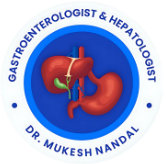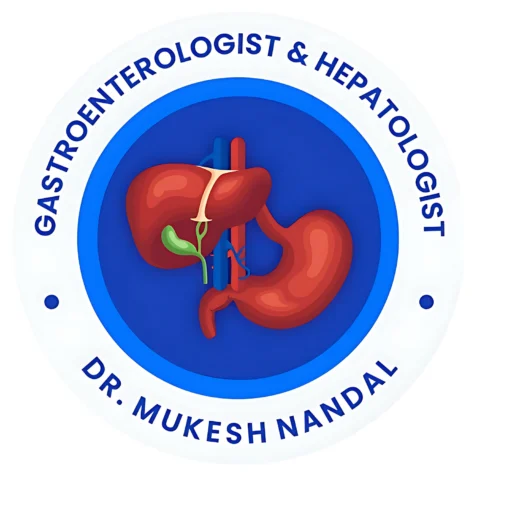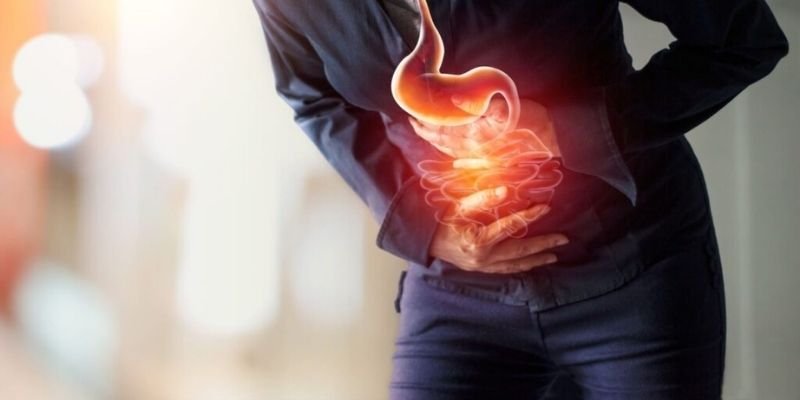Common GI Disorders in Monsoon and Tips to Prevent Them
The monsoon season brings relief from the scorching heat, but it also brings along a surge in gastrointestinal (GI) infections. The increased humidity and water contamination during this time create a perfect environment for bacteria, viruses, and parasites to thrive. As a result, GI disorders in monsoon are common and can significantly affect your health and daily routine.
In this blog, Dr. Mukesh Nandal, Senior Consultant and leading Gastroenterologist in Gurgaon at Narayana Hospital and Atharva Polyclinic, Sector 10A Gurgaon, shares expert insights on common GI disorders during the rainy season and how to prevent them.
Why GI Disorders Are Common in Monsoon?
Monsoon brings several changes in our environment – stagnant water, contaminated food, and fluctuating temperatures. These factors make it easier for harmful microorganisms to enter our digestive system, resulting in various GI disorders in monsoon.
Poor hygiene, street food consumption, and unsafe drinking water are major contributors to gastrointestinal infections during this season.
Common GI Disorders in Monsoon
1. Diarrhea and Gastroenteritis
One of the most common GI disorders in monsoon, diarrhea is usually caused by consuming contaminated water or food. Gastroenteritis, or stomach flu, leads to vomiting, cramps, and loose motions due to viral or bacterial infection.
2. Typhoid
Caused by Salmonella typhi, typhoid is a serious bacterial infection that spreads through contaminated food and water. Symptoms include prolonged fever, weakness, and abdominal discomfort.
3. Hepatitis A & E
These viral infections are transmitted through ingestion of contaminated food and water. Both affect the liver and cause symptoms like jaundice, fatigue, nausea, and abdominal pain.
4. Food Poisoning
Eating out during monsoon is risky. Improperly stored or prepared food can harbor harmful bacteria like E. coli and Salmonella, causing food poisoning.
5. Worm Infestation
Children are especially vulnerable to parasitic infections like roundworms and hookworms during the rainy season, which may lead to abdominal pain, nausea, and poor appetite.
How to Prevent GI Disorders in Monsoon?
1. Drink Only Boiled or Filtered Water
Avoid tap water during monsoon. Use boiled or filtered water for drinking, brushing, and cooking.
2. Eat Fresh and Home-Cooked Food
Refrain from consuming food from street vendors or exposed items. Cook food thoroughly and avoid eating stale or reheated meals.
3. Practice Good Hand Hygiene
Wash hands with soap before eating and after using the washroom. Carry hand sanitizer when traveling.
4. Avoid Raw Salads from Outside
Raw vegetables, if not washed properly, can carry harmful germs. Either avoid them or prepare them at home.
5. Wash Fruits and Vegetables Thoroughly
Soak fruits and veggies in clean water or a mild vinegar solution to remove contaminants.
6. Stay Up to Date on Vaccinations
Consult your doctor about vaccines for typhoid and hepatitis A & E, especially before the monsoon.
When to See a Gastroenterologist?
If you experience:
- Persistent diarrhea or vomiting
- High fever and fatigue
- Yellowing of eyes or skin
- Unexplained stomach pain or bloating
It’s crucial to seek help from a qualified Gastroenterologist in Gurgaon.
Dr. Mukesh Nandal, Senior Consultant at Narayana Hospital Gurgaon, also practices at Atharva Polyclinic, Sector 10A Gurgaon, and offers expert diagnosis and treatment for various GI disorders in monsoon. His patient-first approach and years of clinical expertise make him a trusted name in gastroenterology.
Conclusion
Monsoon is a time of beauty – but it’s also a time to be extra cautious about what you eat and drink. Most GI disorders in monsoon are preventable with proper hygiene, healthy eating habits, and timely medical care. If you are dealing with digestive issues this rainy season, don’t ignore the signs.
Reach out to Dr. Mukesh Nandal, a highly experienced Gastroenterologist in Gurgaon, for timely diagnosis, expert care, and long-term digestive health.
Disclaimer:
The information provided in this content is for educational and informational purposes only and is not intended to replace professional medical advice, diagnosis, or treatment. Always consult your doctor or a qualified healthcare professional with any questions you may have regarding a medical condition. Do not ignore or delay seeking medical advice based on something you have read here.


